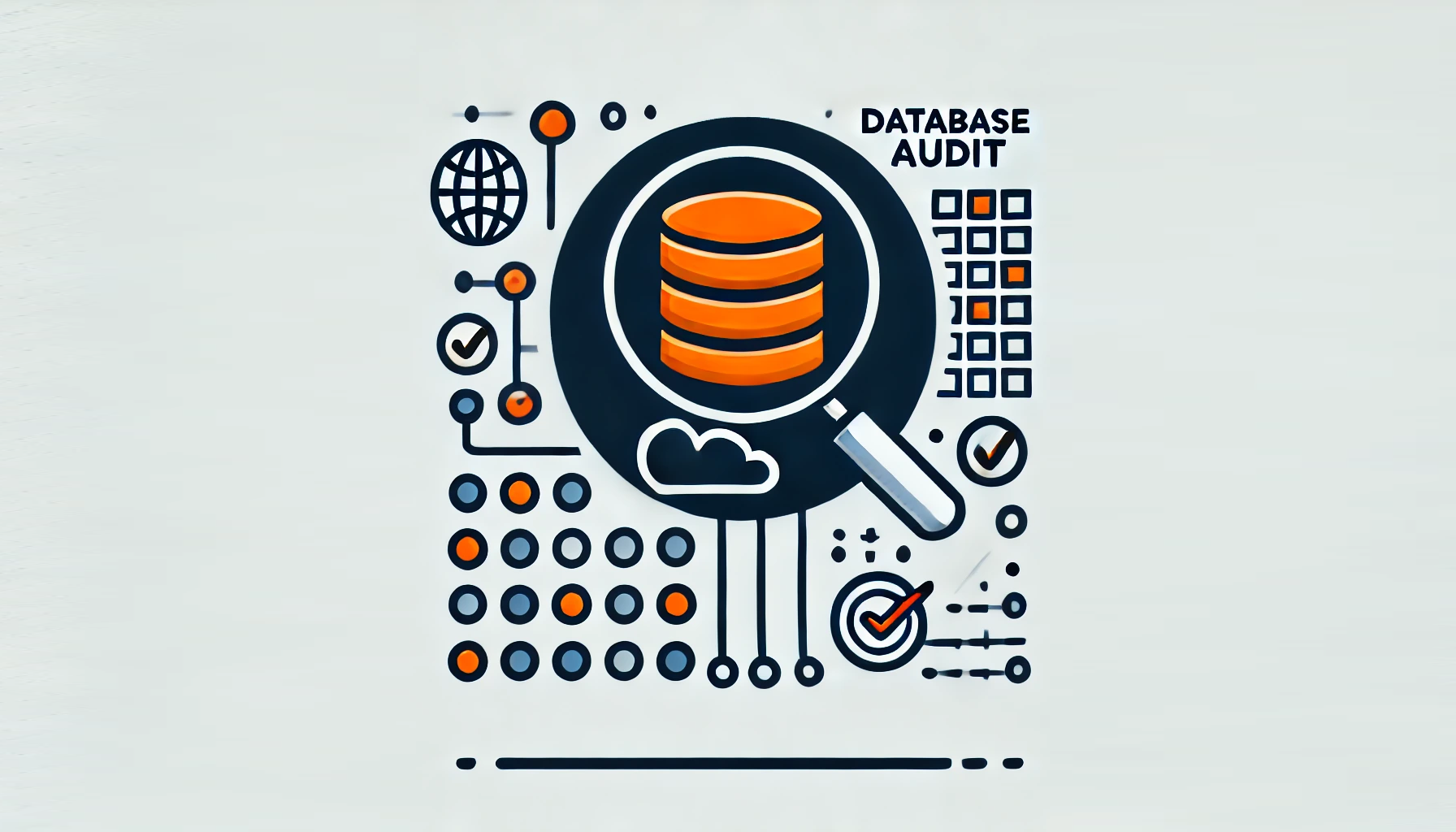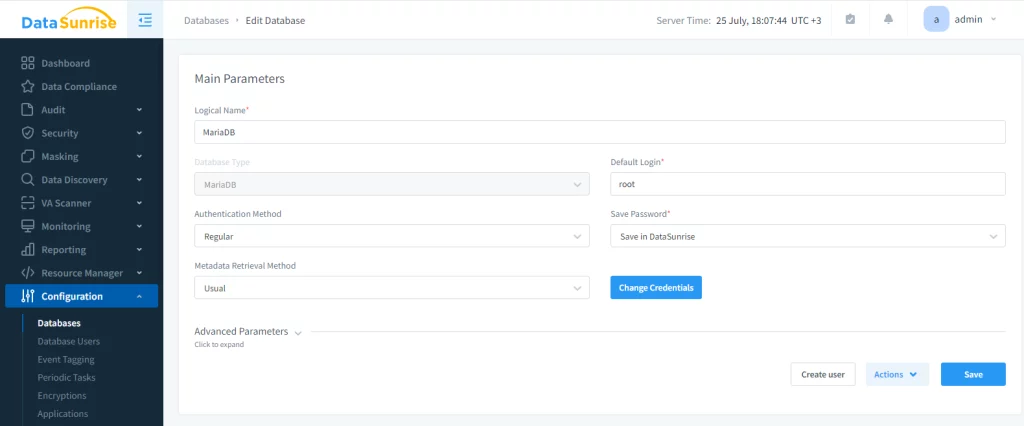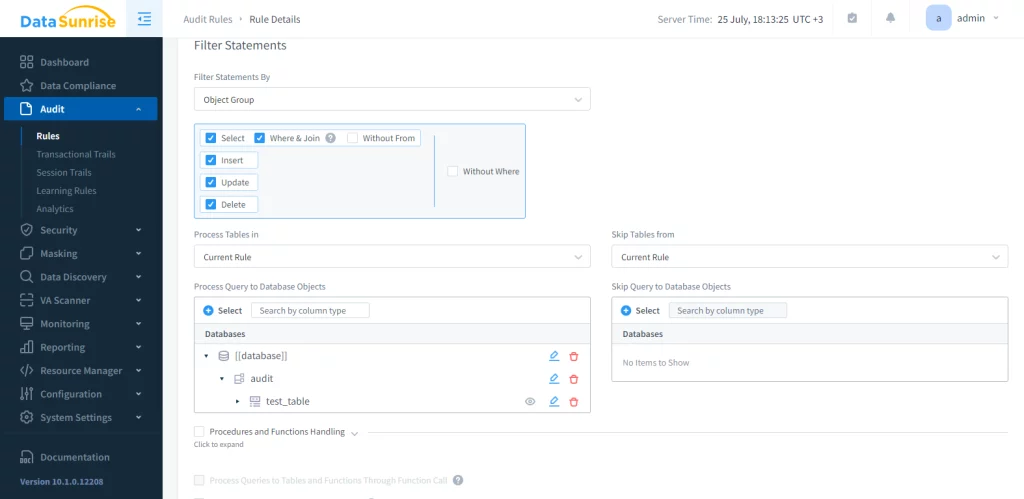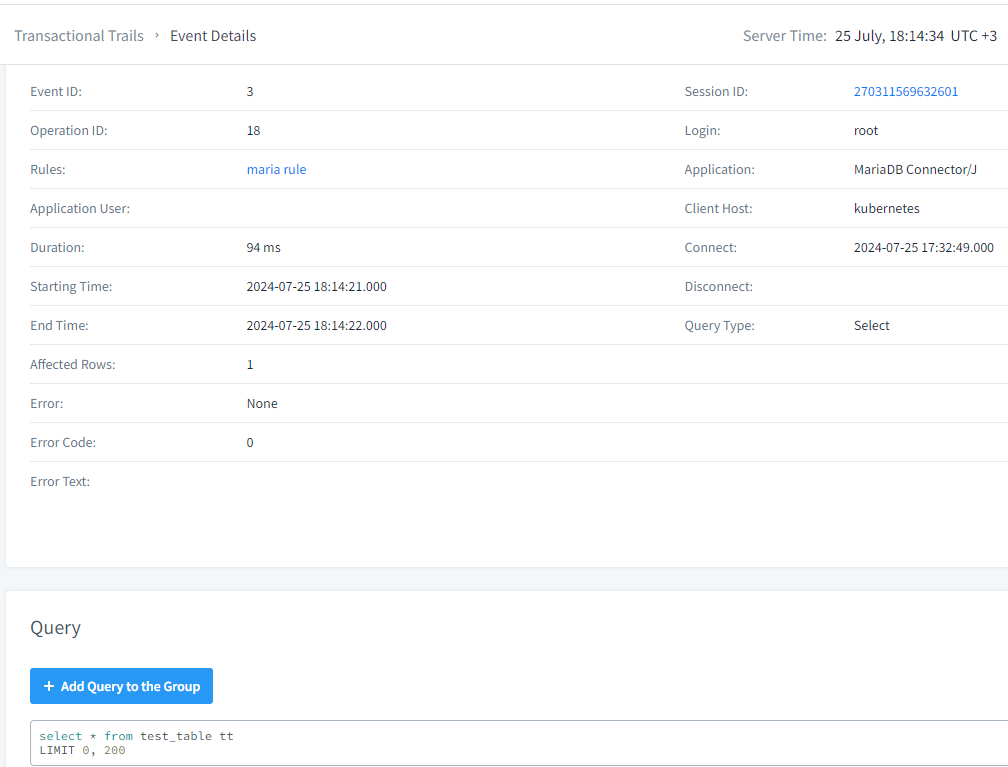
Enhancing Security and Compliance with Database Audit in MariaDB

MariaDB is a popular open-source relational database management system. Organizations widely use it to store and manage their data. As businesses rely more on digital information, the need for database auditing becomes crucial. This article will explore database audit in MariaDB, its importance, and how to implement it effectively.
What is Database Audit in MariaDB?
Database audit in MariaDB involves tracking and recording database activities. Organizations use it to monitor who accesses their data, what changes they make, and when these actions occur. This process is essential for maintaining data integrity, ensuring compliance, and enhancing security.
MariaDB database audit plays a vital role in several aspects of database management. It helps detect unauthorized access attempts, tracks changes to sensitive data, and provides a trail of user activities. This information is invaluable for troubleshooting issues, investigating security breaches, and meeting regulatory requirements.
For example, a financial institution using MariaDB can use database auditing to monitor access to customer account information. This helps them comply with regulations like GDPR or PCI-DSS.
Key Features of MariaDB Database Audit
MariaDB offers several features for effective database auditing. These include the Server Audit plugin, user account management, and the Event Scheduler.
The Server Audit plugin is a built-in tool in MariaDB for comprehensive auditing. It allows administrators to log various database events, including successful and failed connections, query executions, and table access. An online store can use the Server Audit plugin to monitor customer order queries. This helps them monitor for any unusual activity or potential data breaches.
MariaDB provides robust user account management features. Administrators can create, modify, and delete user accounts, set password policies, and assign specific privileges. You can audit these actions to ensure proper access control.
A healthcare provider might use this feature to audit changes to user accounts that have access to patient records. This helps maintain patient privacy and comply with HIPAA regulations.
The Event Scheduler in MariaDB allows for the automation of database maintenance tasks. Even though it’s not directly related to auditing, it can still be useful for scheduling regular audit log rotations. It can also help trigger custom audit procedures.
Implementing Database Audit in MariaDB
Let’s say we have a table we want to be audited. The query to be monitored would be:

To execute it using native resources of MariaDB, you need to enable the Server Audit plugin. This can be done by adding the following line to your MariaDB configuration file:
plugin-load-add=server_audit=server_audit.so
After enabling the plugin, you can configure it to log specific events. For example, to audit all query executions, you can use:
SET GLOBAL server_audit_events='QUERY';
Once the Server Audit plugin is enabled, you need to configure where the audit logs will be stored. You can set the log file path using:
SET GLOBAL server_audit_file_path='/path/to/audit.log';
Ensuring that the log file is stored in a secure location with proper access controls is important.
This may be quite tedious to perform. This is how the process of auditing goes using DataSunrise.
Add a MariaDB instance to the configuration:

This allows to set up any auditing, security and masking to the database by using proxy. Next, create an audit rule and configure it to your needs. In our case, we choose to audit the ‘test_table’ table exclusively.

Afterwards, the system will audit all queries to the table and users can find logs in the “Transactional trails” section.

Best Practices and Challenges
To get the best results from your MariaDB database audit, follow these tips.
Review logs on a regular basis. Make sure to store logs securely. Rotate audit logs periodically. Create custom audit policies. Utilize security tools for integration.
Set up a schedule to review audit logs regularly. This helps identify potential issues early and ensures your audit process is working as expected. Store audit logs in a secure location, separate from the database server if possible. This prevents unauthorized access and tampering of audit records.
Implement log rotation to manage the size of audit logs. This ensures that logs do not consume too much disk space while retaining important audit data. Configure audit policies based on your organization’s specific needs. Focus on auditing critical tables, sensitive data access, and high-privilege user actions.
Consider integrating your MariaDB audit logs with security information and event management (SIEM) tools. This provides a centralized view of all security events across your infrastructure.
While database auditing in MariaDB offers numerous benefits, it also comes with challenges. Extensive auditing can impact database performance. Balancing your auditing needs with performance requirements is crucial.
As audit logs grow, managing and analyzing them can become complex. Implement efficient log management and analyzing tools to handle large volumes of audit data.
Audit logs may contain many routine events, making it challenging to identify genuine security issues. Develop strategies to filter and prioritize audit events effectively.
Conclusion
Database audit in MariaDB is a powerful tool for enhancing security, ensuring compliance, and maintaining data integrity. By leveraging MariaDB’s built-in auditing features and following best practices, organizations can effectively monitor and protect their valuable data assets.
A good database audit strategy is more than just collecting logs. It’s about getting useful information to make your database security better. With proper implementation and management, MariaDB database audit can significantly strengthen your organization’s data protection efforts.
